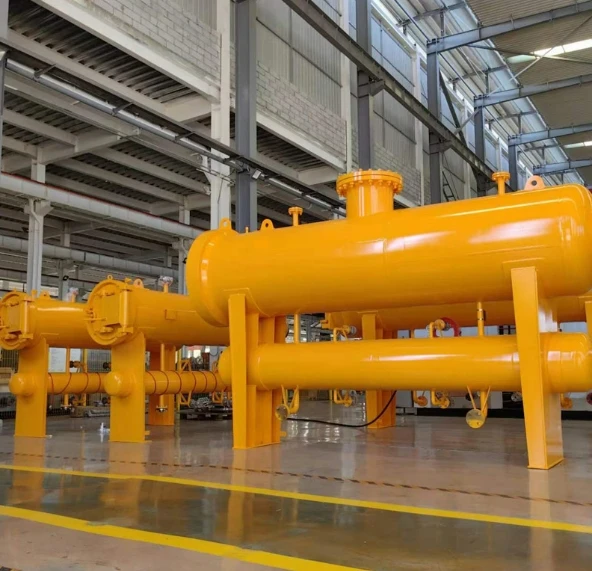
Dec . 12, 2024 22:47
Back to list
filter separator
Understanding Filter Separators A Key Component in Process Industries
In various industrial applications, particularly in oil, gas, and chemical sectors, filter separators play a pivotal role in ensuring the quality and efficiency of operations. These devices are essential for separating liquids from gases and removing solid impurities from the process flow, thereby maintaining optimal system performance and protecting downstream equipment.
The Working Principle of Filter Separators
Filter separators operate on the principles of gravity, inertia, and filtration. The process begins when a mixed stream of gas, liquid, and solid enters the separator. The design of the separator allows for the larger, heavier solid particles to settle at the bottom due to gravitational forces. Simultaneously, the lighter liquid phase, which may contain dissolved solids or other contaminants, is directed to filtration elements inside the separator.
The filtration media, usually in the form of mesh screens or filter cartridges, capture finer particles and impurities. As the gas rises through the separator, it becomes progressively cleaner. The design of the separator not only promotes effective removal of contaminants but also minimizes pressure loss in the system, ensuring smooth and efficient gas flow.
Applications of Filter Separators
Filter separators are extensively used in various industries. In the oil and gas sector, they are crucial in processing natural gas by removing water, oil, and particulate matter before the gas moves to compressors or pipelines. This step is vital in preventing damage to expensive equipment and ensuring compliance with environmental regulations.
In chemical processing plants, filter separators help maintain product purity by removing unwanted solids and liquids from the process streams. In industries such as food and beverage, pharmaceuticals, and water treatment, they play a similar role in ensuring the end products meet stringent quality standards.
Benefits of Using Filter Separators
1. Efficiency Improvement By removing unwanted contaminants, filter separators enhance the efficiency of processes, leading to better throughput and reduced downtime. Less contamination means that maintenance and cleaning activities are less frequent.
2. Equipment Protection Protecting downstream equipment from solid and liquid contaminants reduces wear and tear, ultimately prolonging the lifespan of pumps, compressors, and other valuable assets.
filter separator

3. Quality Assurance In industries where product quality is paramount, filter separators help in achieving high purity levels. This is critical not only for compliance but also for maintaining customer trust and satisfaction.
4. Cost Savings Although the initial investment in filter separators can be significant, the long-term savings in maintenance, reduced downtime, and enhanced productivity often justify this expenditure.
Selecting the Right Filter Separator
Choosing the appropriate filter separator for a specific application involves considering several factors
- Process Conditions Understanding the operational parameters such as flow rates, temperatures, and pressures is essential in selecting a separator that can withstand these conditions effectively.
- Contaminant Types Different applications may require different filtration media or designs to address specific types of contaminants. Some separators may be designed to handle high solid loads, while others focus on fine filtration.
- Material Compatibility The materials used in the construction of the separator must be compatible with the process fluids to prevent corrosion and ensure longevity.
- Maintenance Requirements Some filter separators require more frequent maintenance than others. Considering the ease of access and the routine maintenance schedule will help in choosing the right equipment.
Conclusion
Filter separators are indispensable in many industrial applications, providing critical functions that enhance operational efficiency, protect equipment, and assure product quality. As industries continue to evolve and seek greater efficiency and sustainability, the role of filter separators remains vital. By understanding their operational principles, benefits, and selection criteria, companies can make informed decisions that bolster their productivity and drive success in their respective fields.
Next:
Latest news
-
Safety Valve Spring-Loaded Design Overpressure ProtectionNewsJul.25,2025
-
Precision Voltage Regulator AC5 Accuracy Grade PerformanceNewsJul.25,2025
-
Natural Gas Pressure Regulating Skid Industrial Pipeline ApplicationsNewsJul.25,2025
-
Natural Gas Filter Stainless Steel Mesh Element DesignNewsJul.25,2025
-
Gas Pressure Regulator Valve Direct-Acting Spring-Loaded DesignNewsJul.25,2025
-
Decompression Equipment Multi-Stage Heat Exchange System DesignNewsJul.25,2025

